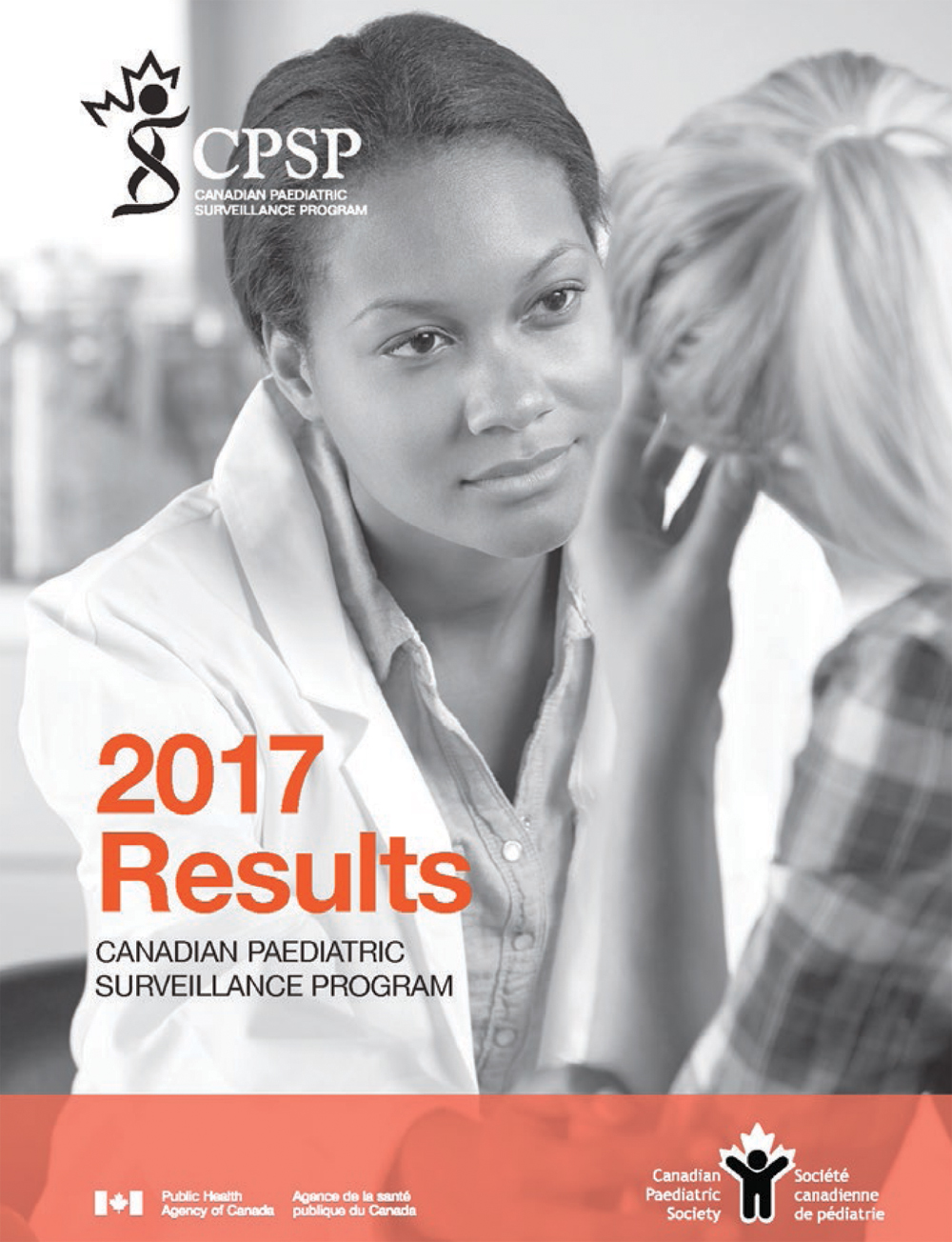Release notice – The Canadian Paediatric Surveillance Program 2017 Results
Health Promotion and Chronic Disease Prevention in Canada
https://doi.org/10.24095/hpcdp.38.10.06
The Canadian Paediatric Society (CPS) and the Public Health Agency of Canada are pleased to announce the release of The Canadian Paediatric Surveillance Program 2017 Results.
The Canadian Paediatric Surveillance Program (CPSP) is a national child health surveillance program that monitors rare or emerging childhood diseases and conditions that are of public health importance.
This annual report summarizes the program’s studies and one-time surveys carried out in 2017. Full studies examined: severe microcephaly, congenital Zika syndrome in infants, medically serious self-harm in youth requiring intensive care unit admission, acute flaccid paralysis (polio), adverse drug reactions, avoidant/restrictive food intake disorder, childhood Lyme disease, Listeria in the newborn and early infancy, non-type 1 diabetes, Pompe disease, complex regional pain syndrome and Rh sensitization.
One-time surveys conducted in 2017 covered: cannabis for medical purposes among Canadian children and youth, vaccine hesitancy and vaccine-preventable diseases, antiseptics causing chemical skin injuries/burns in newborns, and paediatric care of children from military families.
The report also contains an update on international developments in the surveillance, research and knowledge translation of rare paediatric diseases/conditions, as well as a list of recent presentations and publications on current and previous CPSP studies.
The CPSP provides an innovative means of identifying and obtaining data on rare diseases and conditions from over 2500 participants. The process for applying to launch a new study or survey is detailed at: https://www.cpsp.cps.ca/apply-proposez.
The CPSP Results have been published annually since 1999 and can be accessed at: https://www.cpsp.cps.ca/publications.
